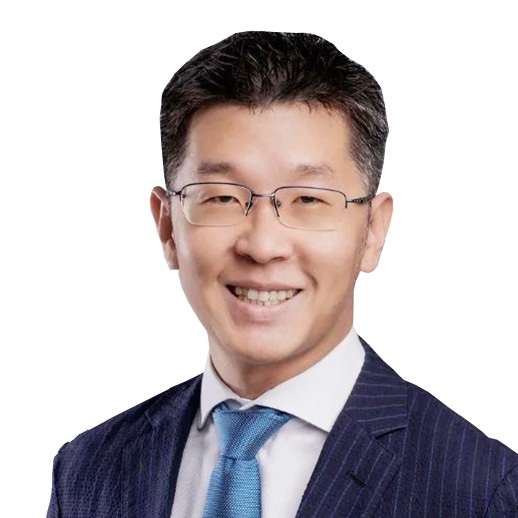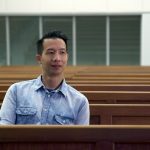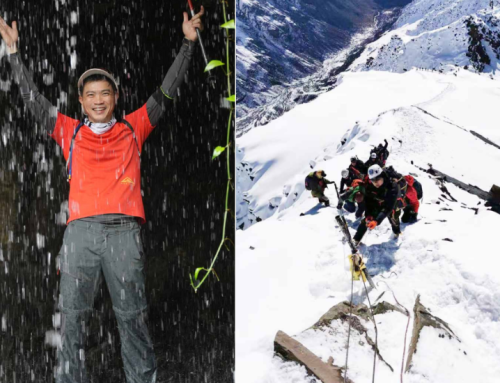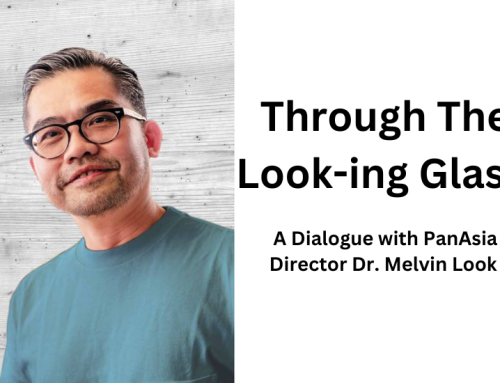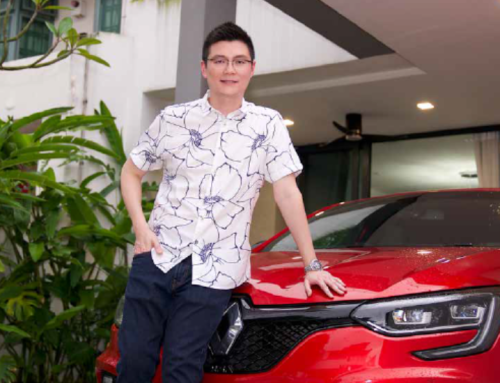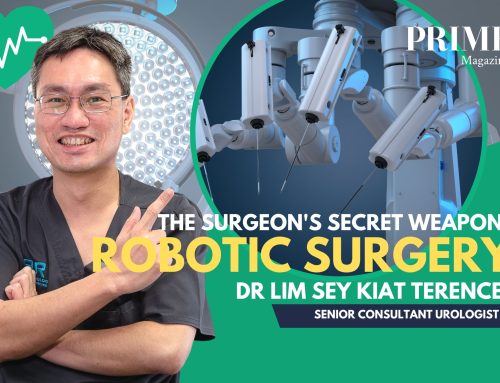
To most people, cooking and urology may appear to be two distinct and disparate fields. However, closer examination will reveal unexpected connections between these seemingly unconnected worlds. For example, both areas require a level of precision and technique to their craft. While urologists utilise advanced surgical techniques and precise procedures to diagnose and treat conditions, chefs also require a keen attention to detail in order to create a delicate dish, using precise measurements and cooking methods.
Urologists and chefs also share the common trait of creativity and innovation. Whereas a urologist makes use of innovations in technology and procedures to continually improve patient outcomes, and adapts to advancements in medical science, a chef similarly tries new ingredients and experimental cooking techniques to push the boundaries of culinary artistry. Last but not least, both need to blend different elements for optimal results. A urologist may integrate multiple approaches, medications and treatments to provide comprehensive care tailored to each patient’s unique needs, while a chef will need to blend various ingredients to create a harmonious flavour profile in a dish.
These parallel values of precision, creativity and balance between cooking and urology may be something which not many will notice or appreciate. PanAsia Surgery Group Urologist Dr Jay Lim is certainly one of the few who can. In this edition of Prime Interview, Dr Lim, an adept cook and a skilled urologist, relates to us his love of cooking and urology as well as how his medical career and personal ventures have led to memorable life experiences.

Good afternoon, Dr Lim. Thank you for welcoming us to your home and giving us a glimpse of your culinary skills. Before we talk about cooking, let us first hear about your journey as a urologist. How did you get into the medical profession and why did you choose to specialise in urology?
Dr Jay Lim: Good afternoon and you are more than welcome! I will be cooking a tomahawk steak and hope it comes out good for you later.
Now, to your question: at the risk of sounding clichéd, I went into medicine due to my rebellious nature. I was a horrible student and struggled in Singapore’s education system, which was too rigid for me. I was interested to go into medicine, but other people kept insisting to me that I couldn’t do it. So, I went and did it! It wasn’t easy, but I knew it wasn’t impossible either. So, don’t listen to the naysayers who tell you that you can’t achieve your goals!
After medical school, it was clear to me that I wanted to do surgery of some kind. I think I can speak for the experience of many others when I say that we meet both wonderful and not so wonderful people in the surgery line. As fate would have it, I did meet a few interesting people in urology who ignited my interest in the specialty. It is also one of those specialties that doesn’t require a scalpel to solve problems all the time as conditions can be fixed through a good mixture of medicine and surgery. I like that a lot.
Tell us about some challenging situations you encountered in your work.
JL: Challenging situations are usually such because they are new to you. With experience comes knowledge on how deal with them. A lot of these challenging situations occurred during my formative years in training when I didn’t know how to handle certain things.
For example, I once promised someone who drifted off to sleep that I would see him in a bit, but unfortunately, I lost him after six hours of battling internal bleeding doing CPR on a multi-million-dollar hybrid CT scanner in OT (operation theatre). Breaking the news to his 15-year-old son at dawn about his father’s demise was one of the most traumatic experiences I have had. But you would be right to say that it was probably an even more difficult experience for the son than me. The cupboard in the hospital still bears his (the son’s) fist mark.
These situations are never easy; you recover one breath at a time, one step at a time, one day at a time. I liken medical professionals to a flowering plant; these experiences help to build the base on which we can weather storms. At the end of the day, the tips of the plant will bloom and flowers will blossom, bringing relief to people. Be hardy, and we will grow and become better.

Tell us about the professional achievements you are most proud of.
JL: My career is a work in progress, so I hope that my proudest professional achievement is yet to come. Ask me again when I retire. But if I have to pick something to highlight right now, there are two things which come to mind.
First, I broke the barrier to doctors being appointed Principle Medical Investigators in the field of AI research in 2019. This helped to open the floodgates for other doctors to receive research grants in the local AI space. Prior to that, AI research was essentially closed to doctors. Another achievement which I hold close to my heart is the valuable experience I got from volunteering and being tasked to set up the Community Care Facility at Expo within 72 hours during COVID. That was memorable and scary at the same time.
Could you tell us more about your work on AI application in medicine?
JL: Well, my first degree was in programming which I took for fun as a young man fresh out of the army. Later when I got into medicine, these two fields somehow crossed paths and allowed me to connect two widely different domains together: IT and medicine. My work on AI application in medicine is Natural Language Processing (NLP) in the field of urology.
NLP is a branch of AI that enables computers to understand, generate and manipulate human language. NLP enables AI to interrogate data with natural language text or voice. You probably have interacted with NLP before, but didn’t know it. It is the core technology behind virtual assistants like Siri and Alexa.
I currently run a startup called AiM Medical that works on building clinical databases using Large Language Model (LLM) algorithms that crawls through tens of thousands of electronic archived data. A LLM is a deep learning algorithm that can perform a variety of NLP tasks. They are trained using massive datasets, and can recognise, translate, predict or generate text or other content.
How excited are you about the application of LLM in medicine?
JL: The role of LLMs in medicine is a green field. It is explorative. It is hard work and doesn’t pay. It disappoints more than it rewards. Sounds negative? We need to be patient. LLM is extremely exciting when it works. It is also applicable to all medical disciplines and its potential is enormous.

How do you approach continuous learning and professional development?
JL: I am fortunate that urology happens to be a specialty that utilises a lot of fancy gadgets. Being an endourologist, I get to play and invent many weird and wonderful tools to do things better. Every few years, there will be new gadgets and new toys so it’s impossible to not learn continuously and develop yourself. The difficulty is in balancing our nature as creatures of habit and embracing new ways of doing things better – coming out of our comfort zone. It is something that I am still learning every day.
What is life like for a doctor?
JL: Doctors are no different from other regular guys. At home, I spend my time being a husband, dad, maid (I don’t have one), cook, chauffeur, handyman and ATM. I am the clan disciplinarian to nine kids. I run my startup meetings with half my team in Australia.
Things are not perfect but it’s good enough for us. We are very blessed in Singapore to have helpers and all, but the downside is that we forget how to live. Without helpers, I have learnt to be a better parent and I bring up my children to be independent. Seeing a patient at work and then scrubbing the toilet at home in the evening helps to keep me grounded on the realities of life.
An average day starts at 6am with breakfast and school preparation. I leave the house at 7:15am to get the kids to school. In between my clinical duties and school, I exercise whenever I can. Do something, anything to keep active. Work and meetings then take centre stage after 9am. In between, I run meetings and my extra-curricular ventures. In the evenings, it’s family time or cooking. Late nights are reserved for operations. Out of necessity, I live spontaneously to survive this regime. My wife hates me for this, but that is how I get things done as I have learnt to limit my procrastination and just do things.
What are your beliefs about health and wellness?
JL: Health is a physical thing while wellness is a state of mind that includes mindfulness. I have some senior colleagues of mine who are healthy and found the mental wellness which completes them. It’s an unmissable aura. There is a glow around them. Coincidentally, they are great surgeons so it must be doing something helpful professionally.

How do you maintain your health and wellness?
JL: I used to get bothered by the fact that I cannot save everyone or everything as a doctor. Some things are beyond our control, such as patient choices. Then I remind myself that autonomy is of utmost importance in medicine. The concept of patients being able to decide for themselves, despite external influence, is something we need to be at peace with.
The desires of a happy person who has lived a grand life can differ from their children’s wishes. This rule transcends culture, wealth and time. Once you subscribe to that, your mental health will be more at peace with the decisions and needs of others. I do not need to understand their reasoning, I just need to respect them.
When things get heavy at work, I seek solace with exercise. Every time I jog, I imagine my mind as a jar of sand that is compacted with every step. At the end, I find space to take in more!
Cooking is another solace of mine. I like to cook. It brings joy to myself and others…ok, maybe more to myself, but my cooking is half decent so I’d think it brings joy to others too! See if you think my tomahawk is any good!
Besides exercising and cooking, I also picked up gardening in the past few years, particularly salvaging Phalaenopsis Orchids (Moth Orchids) that are thrown away after Chinese New Year! It is fun to restore growth from death! I also like fixing stuff at home. I handle all the electrical and pumping needs at home.

Do you think you have work-life balance from these?
JL: Actually no, I don’t! Tell me if and when you figure out how to achieve that!
What are your core life principles?
JL: Be a good person, a good parent, a good doctor and a good surgeon – in that order. Always behave in a manner that lets you sleep guilt-free at night. No need to fight for everything in life, just the important ones!
And don’t miss the forest for the trees. The forest can give you experiences you never imagined. Having lived overseas, I realise the world is much, much bigger than Singapore. There are so many places and people to meet. Singapore is home but it is not the only place to be. We can be even better Singaporeans by not being in Singapore.
I understand you went on a self-funded sabbatical some time ago. Tell us about your experience. Why did you do it?
JL: One of the main reasons why I took the sabbatical was to go through a baptism of life. The doctor I was at that time was a very different version from the doctor I wanted to be. I was conforming to what my bosses wanted, instead of working towards my own goals and identity. While a public institution appointment guarantees seniority, stability and presence, it has its own set of restrictions and hierarchy that I don’t feel comfortable with. There are certain things which are not necessarily borne out of merit.
COVID also helped to put things into perspective for me – as in how fragile life can be. My experience at the Community Care Facility at Expo during COVID was defining. Once you overcome the fear of the unknown – being in a room with 2,500 COVID patients without any vaccination, you can do a lot of things.
Another reason why I took the sabbatical was because I wanted my children to experience life outside of Singapore. Hence, we took the road less travelled. They have grown so much more independent and worldly as a result of their experiences abroad.
Last part of the interview. Quickfire: What aspects of health should people pay more attention to?
JL: As a urologist, I am biased; hence, the urinary system would be a key aspect for me. Why? Micturition occurs daily – up to 5-6 times a day. Regardless of your health status, you need to pee to stay alive and to feel alive as it provides a sense of normalcy, especially for the terminally ill. You won’t understand how important peeing is until you lose the ability to! So, if I solve a person’s voiding issue, I give them a quality of life that is immediate and recurrent! While other organs may be important, voiding issues are constant and ever present until they are resolved.
Worst thing about modern lifestyle.
JL: SAF (Singapore Armed Forces) have a saying: rush to wait and wait to rush. With a blink, life is over and we find that we have nothing to hold on to, and yet we have aged. We forget to live in the present.
Advice to young, aspiring doctors or medical professionals?
JL: Start your family early. One of the best decisions I ever made was not to delay starting my family, when I was undergoing training. If you intend to have a family, do it early. Your bosses’ requirements are exactly that – their requirements. They are not yours. You have to answer to yourself before anyone else.
I assure you that things will work out somehow. Yes, to be a good surgeon/specialist, you need to be a doctor; but even before that, you need to be a good parent/person at root. Personally, being a parent taught me the value and importance of empathy, and helped me to connect with my patients. It taught me to put others before myself. Many of my juniors learnt that I speak the truth, but this realisation comes years too late.

Parting advice for Prime readers.
JL: Don’t forget to live in the present. When dealing with others’ perception of you, remember that those who matter don’t mind, and those who mind don’t matter. Don’t be a version of what others want or expect of you. Be who/what you aspire to become.

@PRIME


